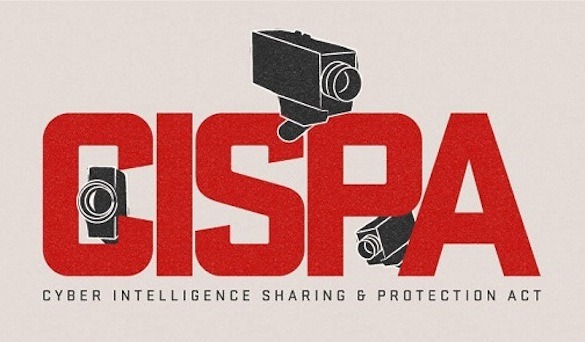
The United States’
population has been abuzz the past couple weeks with extraordinary anomalies
that have taken place across the country. The Texas
fertilizer accident and the Boston
bombings are but two of these incidents that have so captivated the national
spotlight. Even still, Washington
D.C. has been busy on their own
front, as the controversial cyber security bill known as CISPA (The Cyber
Intelligence Sharing and Protection Act) passed through the House of
Representatives, last Thursday, with general ease, garnering a 288-127 vote
count from the floor.
Nevertheless, increased
opposition has been accruing since the bills proposal: resistance from privacy
advocates, civil liberty groups, and even the White House –as President Obama
has threatened an executive veto –has taken a mighty stand against the cyber
security bill through various mean of communication. But what exactly is CISPA,
and why should anyone care?
It
seems that the bill has much support, despite the aforementioned opponents,
from businesses that are struggling to fend off foreign hackers across Europe
and Asia. The reason being is that many of
these rogue hackers are able to cripple business infrastructure in the United States,
notwithstanding being thousands of miles away from the actual corporations.
Such attacks have lead to a demand for more protection for businesses and more
repercussions for security breeches from international hackers.
Those opposed to the bill,
however, are not buying it. Many object on the grounds that it would give
entirely too much power into the hands of the Federal Government, namely, the
NSA (National Security Agency). Essentially, it would be a free pass into whatever
information needs analyzing from any business in the United States, even if the data is
stored on private computers.
Michelle Richardson, an
ACLU legislative councilwoman, argues: “"Cybersecurity can be done without
sacrificing Americans' privacy online.” In fact, grassroot campaigns have been
gathering widespread support from the laymen throughout America as
well; for instance, many rallied behind CISPA Blackout Day (4/23) in protest to
the Bill. Despite the apparent infringements of the fourth Amendment, lobbyists
are fueling away in support of CISPA, as nearly eighty-four million dollars
have been spent in favor of getting the bill through Congress. All the same,
the bill, since being passed through the House last week, has been floundering
in the Senate by their apparent disinterest on the account of being too busy.
It seems, to conclude,
that it is the citizens right to their own privacy as guaranteed in the Bill of
Rights, namely, the Fourth Amendment. Albeit support has pushed CISPA through
one leg of Congress already, it seems such support is only maintained by lots
of bribes, lobbyists, and backdoor deals. Its future cannot be stated for sure;
however, if it does proceed forthwith through the Senate, President Obama still
has a chance to veto the bill, which he has already hinted he would do if upon
occasion the bill made it successfully to his desk.
The full version of CISPA as passed through the House can be read here:
http://thomas.loc.gov/cgi-bin/query/z?c112:H.R.3523:
The Carnage Report // http://thecarnagereport.blogspot.com // 2013
The Carnage Report // http://thecarnagereport.blogspot.com // 2013
Brent McCulley on Twitter
// http://twitter.com/brentthewalrus

No comments:
Post a Comment